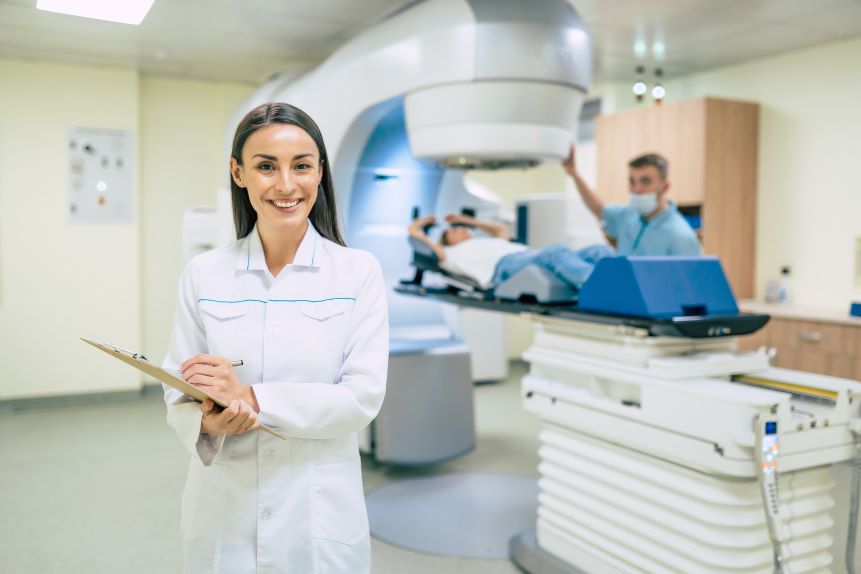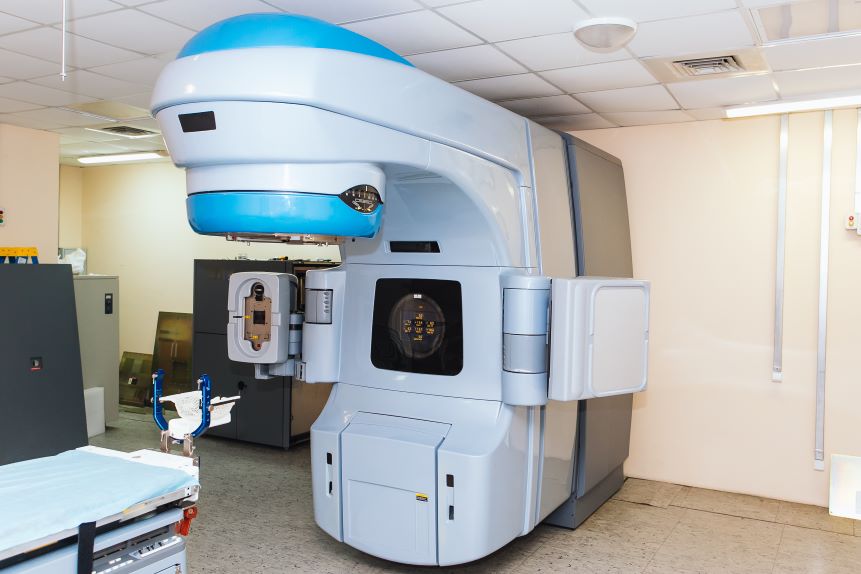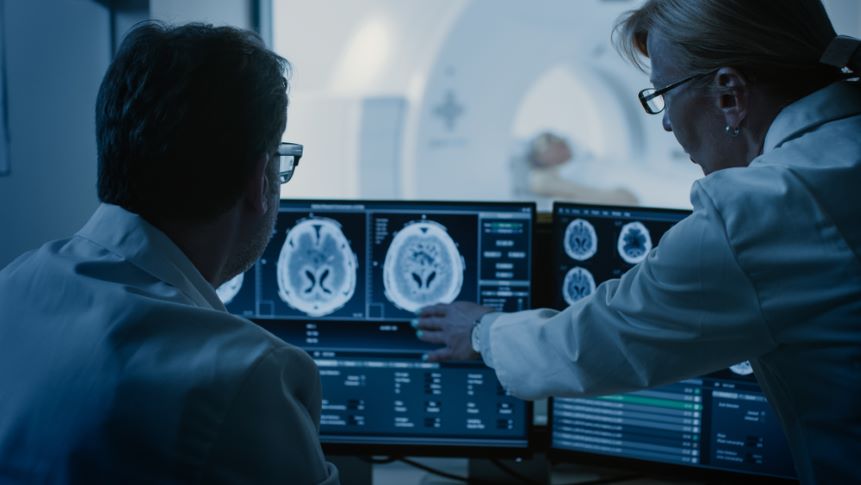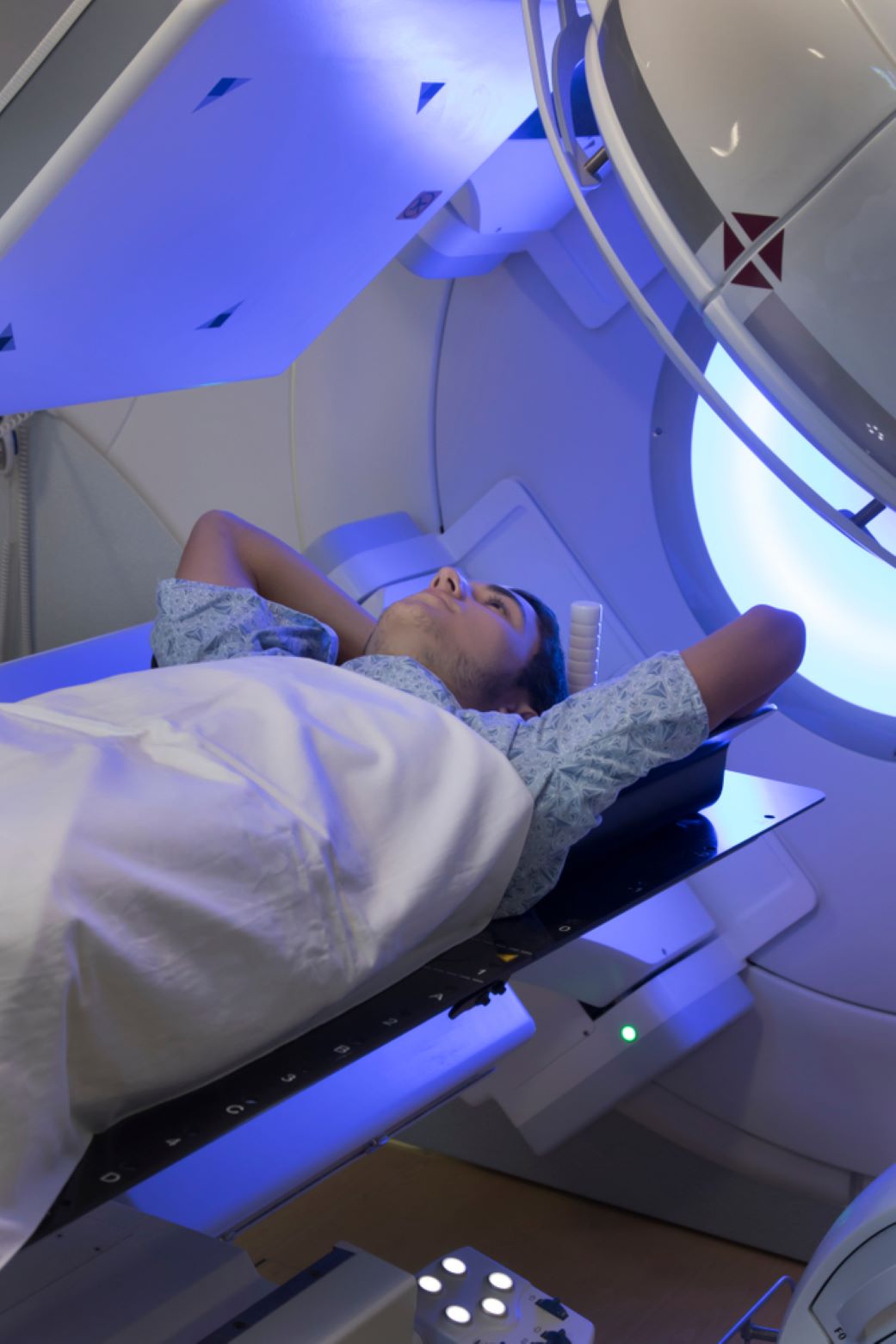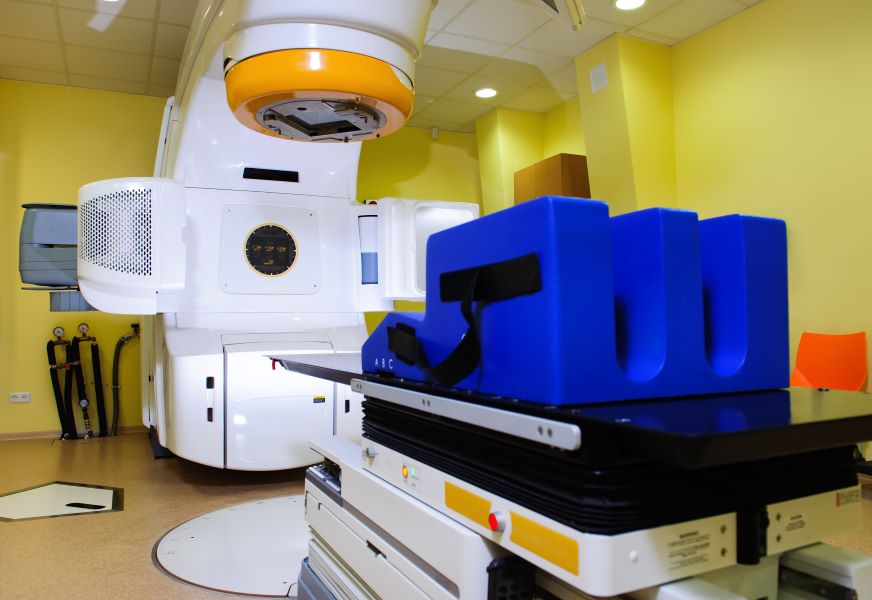Diagnostic radiographers use a range of techniques to achieve a high-quality diagnostic image which aids in the diagnosis of an injury or disease. An important aspect of their role is to provide this service in a safe, accurate and controlled manner so as to limit the radiation exposure risk to the patient.
There are multiple entry routes to the Radiography profession:
- Undergraduate BSc in Radiography
- NFQ Level 8 course in Sciences or a Health Sciences related discipline plus MSc Diagnostic Radiography
CORU the regulator for health and social care professionals will provide you information on approved qualifications. Additional information on the profession can be found on the Irish Institute of Radiography and Radiation Therapy website or you can visit Careers Portal
If you have qualified outside of Ireland, you will find further information here.
